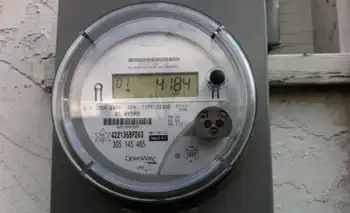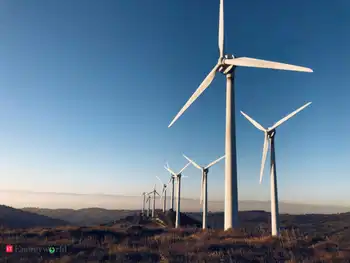B.C. Commercial electricity consumption plummets during COVID-19 pandemic

Protective Relay Training - Basic
Our customized live online or in‑person group training can be delivered to your staff at your location.

- Live Online
- 12 hours Instructor-led
- Group Training Available
BC Hydro COVID-19 Relief Fund enables small businesses to waive electricity bills for commercial properties during the pandemic, offering credits, rate support, and applications for eligible customers forced to temporarily close.
Key Points
A program that lets eligible small businesses waive up to three months of BC Hydro bills during COVID-19 closures.
✅ Eligible small general service BC Hydro accounts
✅ Up to 3 months of waived electricity charges
✅ Must be temporarily closed due to the pandemic
Businesses are taking advantage of a BC Hydro relief fund that allows electricity bills for commercial properties to be waived during the COVID-19 pandemic.
More than 3,000 applications have already been filed since the program launched on Wednesday, allowing commercial properties forced to shutter during the crisis to waive the expense for up to three months, while Ontario rate reductions are taking effect for businesses under separate measures.
“To be eligible for the COVID-19 Relief Fund, business customers must be on BC Hydro’s small general service rate and have temporarily closed or ceased operation due to the COVID-19 pandemic,” BC Hydro said in a statement. “BC Hydro estimates that around 40,000 small businesses in the province will be eligible for the program.”
The program builds off a similar initiative BC Hydro launched last week for residential customers who have lost employment or income because of COVID-19, and parallels Ontario's subsidized hydro plan introduced to support ratepayers. So far, 57,000 B.C. residents have applied for the relief fund, which amounts to an estimated $16 million in credits, amid scrutiny over deferred BC Hydro operating costs reported by the auditor general.
Electricity use across B.C. has plummeted since the outbreak began.
According to BC Hydro, daily consumption has fallen 13% in the first two weeks of April, aligning with electricity demand down 10% reports, compared to the three-year average for the same time period.
Electricity use has fallen 30% for recreation facilities, 29% in the restaurant sector and 27% in hotels, while industry groups such as Canadian Manufacturers & Exporters have supported steps to reduce prices.
For more information about the COVID-19 Relief Fund and advice on avoiding BC Hydro scam attempts, go to bchydro.com/covid19relief.











